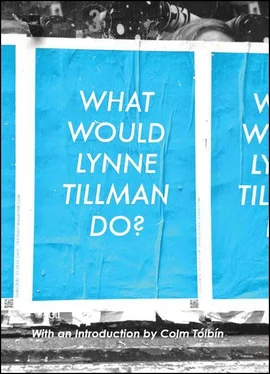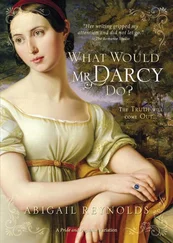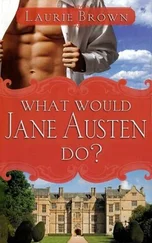Or he wanted the unedited in the way — sort of the inverse way — that John Cage wanted silence. How do we know what to pay attention to; how do we know for ourselves what’s important; how do we choose; how do we know if it’s art; how do we decide what to see and to read, how can we tell unless everything is there to see and to read.
Being human offers homo sapiens variety, or some elasticity, in social life, though sociologists claim that people’s personalities disappear with no one else around. Imagining this evacuation, I see a person alone in a self-chosen shelter, motionless on a chair, like a houseplant with prehensile thumbs.
Diane Sawyer, an unctuous American TV news anchor, once asked a mob assassin: “But haven’t you ever thought, ‘How can I do this? Who am I?’” The man looked at her with incredulity, then said: “I’m a gangster.” Now, it’s true that people (a.k.a. human beings) named themselves human and also defined humanity, but this tautological affair entails neuroses: Do we have a natural state? To say there isn’t one doesn’t quell anxiety, and “just act natural” and “be yourself” remain resilient punch lines to the shaggy-dog story called existence. There are instincts and drives, the basics from which Sigmund Freud theorized — but, oh, the complex array of acts that might satisfy these!
The bandwidth of human behavior includes self-image recognition and cerebration, prized differences from other animals (both premises are currently under investigation). With bigger brains, people have concocted notions about self-reflection and self-awareness, which allowed for “I think; therefore, I am.” Not “I think what; therefore, I am what?” One would have thought that might matter.
Human beings have, like other animals, sexual and excretory organs that either share the same orifice or sit near enough to confuse identification by children. In evolutionary terms, apparently, there have been no great improvements. Also, shit still stinks, which, given the horrors humans commit, seems appropriate.
Dominique Laporte’s History of Shit (1978) narrated the lengths to which people have gone to cover up the smell. But the body finds its way, discharging ugly odors, keeping humans close to their “uncivilized” ancestors. Human violence keeps people as close, maybe closer; it too has likely never changed, only the tools. But violence can’t be covered up with perfume. In part, theories about essence and construction, nature vs. nurture, address, directly and indirectly, motives for aggression and cruelty, ethical behavior — or its lack — and the power of the irrational in the human animal.
In the 1950s, American ethnomethodologists Erving Goffman, Harvey Saks and Harold Garfinkel examined tiny units of social life, such as conversation among friends. Seemingly meaningless conventions screamed disaster if not followed: no “hello” back to a friend jeopardizes the relationship. Little miscues caused rips in society’s seams. They studied gender, declaring masculinity and femininity performances in need of consistent routines, since people surveilled others for lapses that endangered identity but worse any hope for a life without torment.
Humans act differently in wars, in crowds; they act differently if they think nobody’s watching. Punishments and limits — prohibitions on murder, incest, cannibalism — mostly keep people in line, otherwise, humans would be no better than animals, humans like to claim. But all mammals teach their kind and follow rules; they form societies often less violent than ours. Apes, chimps, elephants — the mothers commit years to training their offspring. Wolves, male and female, are ecstatic at the birth of a cub; all guard their young. So, that’s no insult: We do behave like animals.
At parties I observe people acting much like dogs, except for sniffing rear ends, which is generally done in private.
“Acting like a human” is a matter of opinion, too. “Did I do the right thing?” can translate into “did I act right?” Some people act better than others; even when being honest, some people aren’t convincing. Yet con artists are great at appearing sincere. Being honest or “yourself” isn’t necessarily a “natural” state, since the human capacity to dissimulate must always have been necessary for species survival.
I admit to wonder and consternation when people bemoan the loss of authenticity in art, in identity, in life. Andy Warhol is regularly blamed for its supposed absence. He’s blamed for everything. I don’t know what pure state, unmediated existence, or moment in history to which people can or should return. Homo sapiens call themselves makers and doers, and they never leave well enough alone.
Some people are actual actors. Theater has been around a long time, because it serves several purposes. For one, people can watch others being human, portraying emotions and actions, their consequences and vicissitudes. Which brings me to Ryan Gosling in the film Blue Valentine (2010). Gosling embodies an unusually sensitive human to a degree I find unnerving. He plays the husband in this anti-romance romance — a so-called regular American guy, but one I had never seen on screen or stage. Not a rebel like James Dean or Marlon Brando, standard-bearers of “acting real.” No, Gosling’s character is content to love his wife passionately, to adore and care for their child; he is ambitionless, happy to have a lame job. This life is enough for him, and he believes it should be for his wife.
Gosling’s character might or might not exist offscreen. Still, an artifact, a movie, has proffered a novel image for Americans raised on Horatio Alger and other long-running constructions. In Blue Valentine , Ryan Gosling enacts a “real human being” better than most human beings do. I might one day meet such a person. Probably not Mr. Gosling, who would, most likely, not live up to my expectations.
Nothing is Lost or Found: Desperately Seeking Paul and Jane Bowles
I once read: “All journeys have destinations of which the traveler is unaware.” The beginnings of journeys and narratives can be as surprising as their secret destinations. They can start as mysteriously as they end, they can start before one thinks. I was living in Amsterdam in 1972 when I was given a Valentine’s Day gift, an anthology entitled Americans Abroad . It had been published in The Hague in 1932, in English, and was an out-of-print and rare book. It included well-known American expatriate writers — Stein, Pound, Eliot — less well-known ones — Harry and Caresse Crosby — and many unknowns. The unknowns dominated, the way they usually do. Immediately, I wanted to edit a new one, to represent American writers now, or then. Some months later, I was introduced to an editor who had a novelty imprint at a large Dutch publishing house. He liked the idea. He also liked enormously obese women and had posters of them, nude, hidden in his office. After he got to know me a little, he showed them to me. I remember this very well and the fact that on signing the contract he paid me an advance of fifteen hundred guilders.
I think 1971 was the year I read Paul Bowles’ The Sheltering Sky and Jane Bowles’ Two Serious Ladies . I knew that Jane Bowles was ill, in a Spanish hospital, unable to speak her name, and I also knew that Paul Bowles was installed in Tangier and had been since the 1940s. To me, he was the preeminent American abroad (the term is aptly dated), and I was determined to have him in the book.
Writing a letter to Paul Bowles was alarming, and I worked on it for a week. After deliberating, in a circuitous and paranoid way, I decided not to reveal that I was female. It was the era of William Burroughs’s vicious or satiric retort to feminism, The Job . Burroughs and Bowles were friends; I considered, in a convoluted way, that even though Paul Bowles was married to Jane Bowles, if he was in any way like some of his friends, or affected by their mean-spiritedness, he might now hate women and not want to be in a book edited by one. This might not be true at all — and if it were, why would I want him in the book? But I was in Amsterdam, smoking hash. I concocted a sexless letter, signed it Lynne Merrill Tillman (Lynne is also a man’s name; Merrill is my mother’s maiden name) and mailed it.
Читать дальше












